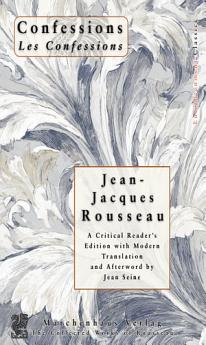Confessions
Acerca de este libro electrónico
The Confessions were written in two parts: books I–VI were composed from 1765–1767, and books VII–XII from 1769–1770. By 1769 Rousseau had completed the entire narrative, covering his life up to age 53. However, he delayed publishing it, and after his death the first half finally appeared in 1782 and the second half in 1789. (An English translation followed in 1790.) The book as published describes Rousseau’s family background, education in Geneva, youthful adventures, and gradual turn toward literature and philosophy. In candid detail he recounts episodes both lofty and shameful – from his reflections on education and music to personal confessions, such as an incident where he blamed an innocent servant for his own theft, or his decision to abandon all five children from a long-term affair to orphanages. He frames these revelations with a famous opening remark that his project had “no precedent,” intending to paint “a portrait in every way true to nature” of himself. In this way The Confessions departs from earlier spiritual memoirs: instead of focusing on religious conversion, Rousseau explores his secular life and emotions in full.
Published in Lausanne and Zweibrücken between 1782 and 1789, Les Confessions became a landmark of autobiography. Rousseau himself saw it as entirely novel, and indeed no book like it had been attempted: prior great autobiographies (such as St. Augustine’s or St. Teresa’s) dealt with the soul’s relation to God, whereas Rousseau’s entire subject is his worldly experience. Its candid, self-analytical approach proved enormously influential. Shortly after its appearance, many major writers began to write their own confessions in Rousseau’s spirit; Goethe, William Wordsworth, Stendhal and others explicitly modeled their autobiographical methods on his. Scholars also highlight that Les Confessions marked the birth of the modern secular autobiography, one in which the author places his own feelings and ordinary life at the center. For historical readers, the work was astonishing and controversial in its time – it shocked some with its level of intimacy – but it has long been celebrated for its literary craft and psychological depth. Today it endures as Rousseau’s most famous and enduring work, studied not only for its revelations about the author’s life but also for its pioneering influence on personal narrative and introspection.











